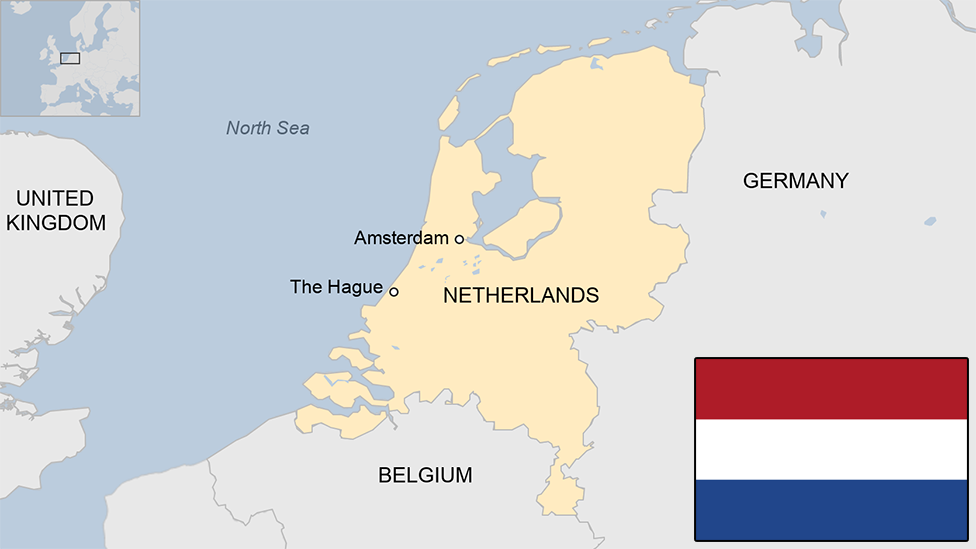Q&A: Dutch parliamentary election
- Published
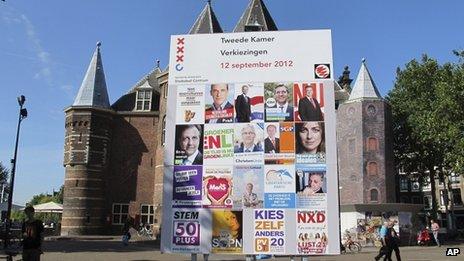
Rival parties are featured on election posters in Amsterdam
Dutch voters will go to the polls on 12 September to elect a new lower house. The 150 seats will be allocated to political parties on the basis of proportional representation.
The election was called early after the anti-Islamic Party for Freedom (PVV) withdrew its support for the centre-right minority government led by Prime Minister Mark Rutte.
Who are the main players?
The previous government was formed by Mark Rutte's conservative-liberal People's Party for Freedom and Democracy (VVD) and the Christian Democratic Appeal (CDA) and depended on the PVV's support in parliament. In the 2010 election, the VVD won 31 seats, Geert Wilders' PVV 24, and the CDA 21.
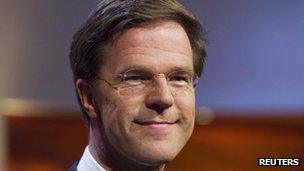
Mark Rutte called an election after his coalition deal broke down
The biggest party on the left has traditionally been the Labour Party (PvdA), which won 30 seats in 2010. This year the more left-wing Socialist Party (SP), which won only 15 seats in 2010, has also been doing well in opinion polls.
Other parties represented in the current lower house are the liberal D66 (10 seats), Green Left (10), the Christian Union (5), the Protestant conservative Reformed Political Party (2), and the Party for Animals (2).
What are the main issues?
Austerity measures and the country's relationship with the EU are two of the main issues in this election campaign.
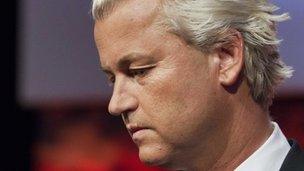
Geert Wilders' Freedom Party withdrew its support for Mark Rutte's government
Mark Rutte tendered his government's resignation in April after Geert Wilders refused to back budget cuts intended to bring the deficit in line with EU rules. The PVV has since made leaving the EU and the euro its top priority, while continuing to call for a stop to "Islamisation".
The VVD says it wants to address the country's financial problems now rather than leaving them to future generations. It emphasises the benefits of the EU's internal market while urging "not more Europe but a better Europe".
On the left, the SP calls for "more social, humane and sustainable" policies and opposes the outgoing government's austerity plans. The party castigates the EU's "regulation mania" and urges respect for national sovereignty.
The PvdA wants to balance "responsible" financial policies with investments and job creation, both in the Netherlands and in the EU.
Are there any TV debates?
Yes, and they are said to have had a noticeable impact on the race. On 26 August, Mark Rutte for the VVD, Emile Roemer for the SP, Diederik Samsom for the PvdA and Geert Wilders for the PVV clashed in an RTL 4 TV debate described by Dutch media as "lively" and "passionate".
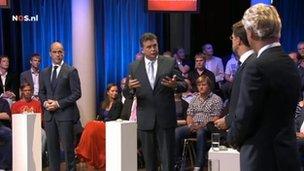
Mr Samsom (L) has overtaken Mr Roemer (C) in opinion polls (Screengrab Dutch NOS website)
Mr Samsom was judged to have won the debate by 51% of viewers taking part in an RTL online poll, while Mr Roemer came last on 6%. Since then the PS has lost a lot of ground to the PvdA in opinion polls.
Another RTL 4 TV debate on 4 September, judged to be more "orderly", was again won by Mr Samsom, closely followed by Mr Rutte, according to an online poll. The newspaper de Volkskrant commented that debt-ridden Greece was the loser because for the first time Mr Rutte had said that he did not want to give Athens any more aid.
A final TV debate is due to be held by the NOS public broadcaster on the eve of the election.
What are the polls saying?
The race is wide open as opinion polls point to great volatility in voting intentions.
For months it looked as if the VVD and the SP were vying for the top spot, but in recent days the SP has slumped and the PvdA has surged to put it neck-and-neck with the VVD.
Meanwhile the PVV is still trailing in fourth place, followed by the CDA and D66.
Neither the main right-wing nor the main left-wing parties appear to be heading for a clear majority, raising the prospect of another minority government or a multi-party coalition.
Coalition negotiations in the Netherlands tend to be drawn-out affairs. They lasted 127 days in 2010, while the post-war record stands at 208 days in 1977.
BBC Monitoring, external selects and translates news from radio, television, press, news agencies and the internet from 150 countries in more than 70 languages. It is based in Caversham, UK, and has several bureaux abroad. For more reports from BBC Monitoring, click here
- Published30 August 2012
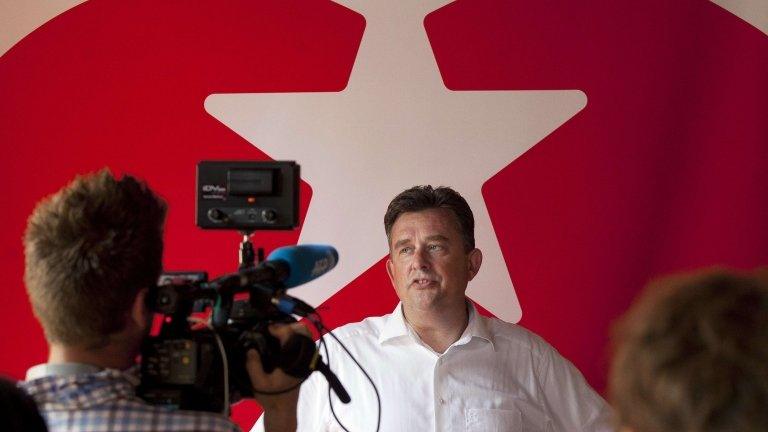
- Published5 May 2012
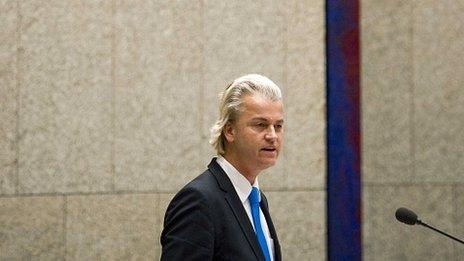
- Published2 July 2024
